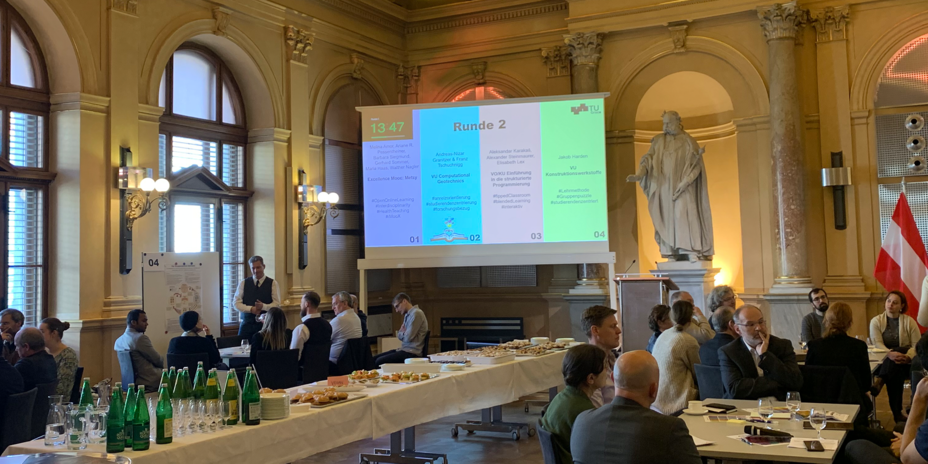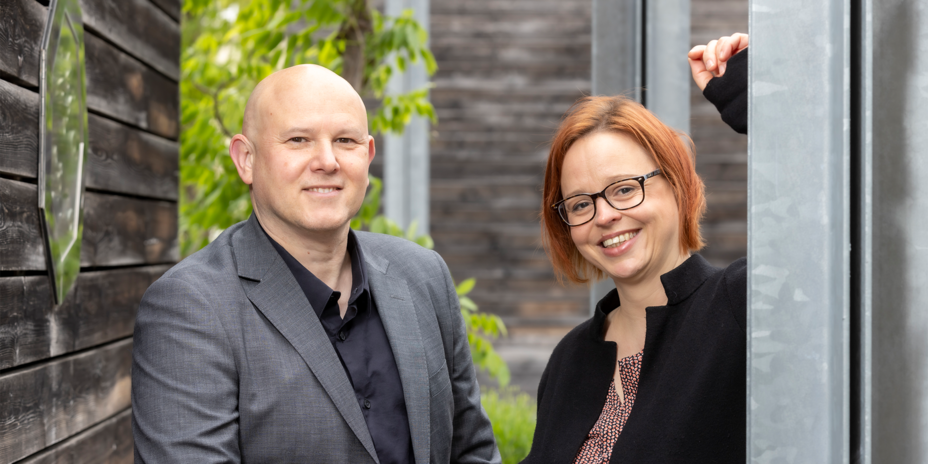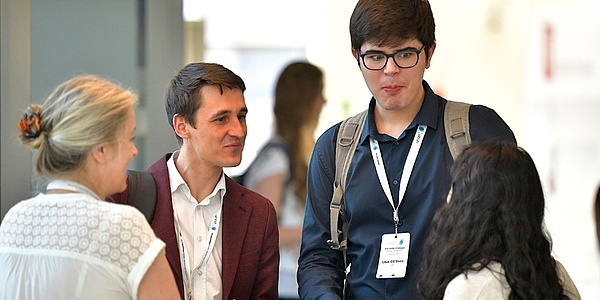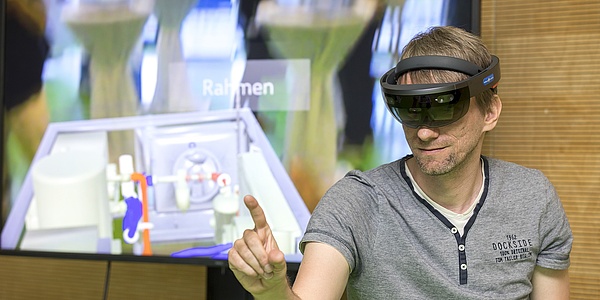The Teaching Academy is the University’s modularly structured, yet flexible continuing education programme in higher education didactics that includes workshops and a range of consulting formats, offered to support teaching staff members. The Teaching Academy is part of the organizational unit "Languages, Key Competencies and In-House Training" and offers programmes and services free of charge to all TU Graz teaching faculty.
The modules and module certificates of the Teaching Academy
The module "Basic" is aimed in particular at teachers at the beginning of their work. Central concepts of university didactics and practical tips for getting started in teaching are just as much a part of the basic didactic training as structural knowledge about teaching, especially about study and examination law and digital teaching at TU Graz.
The workshops of the module "Advanced" address didactic issues, which can be divided into seven different topics ("Teaching and Learning", "Assessment", "Technology-Enhanced Learning [TEL]", "Communication and Presentation", "Advising and Supervision", "Teaching in English", "Diversity in Teaching"). Teachers can take further training specifically for their own teaching context and thus put their teaching skills on a broader footing.
Finally, the module “Expert” offers the opportunity to professionally document one's own teaching competence and to contribute to the teaching community at TU Graz in a variety of ways. The three modules "Basic", "Advanced" and "Expert" can each be completed with a module certificate. Individual workshops can also be attended independently of the module certificate.
Members of Graz University of Technology can find more information about the Teaching Academy and the requirements for the various module certificates on the intranet. Employees of TU Graz can register for Teaching Academy courses via the In-House Training programme. An overview of the modules is also available in the folder.

The interactive teaching conference "In love with teaching" at Graz University of Technology provides a stage for good teaching practice and offers opportunities for exchange with colleagues. Source: TU Graz
The Teaching Community: Participation and contribution are welcome!
Peer learning is not only a promising study method for students. Teachers, too, benefit from learning with and from colleagues. Idea exchange among colleagues serves as a rather valuable approach that fosters further development of one’s own teaching competence. For this reason, the Teaching Academy seeks to promote the exchange of practices, challenges and good ideas in teaching beyond institute and faculty borders. This is achieved, on the one hand, through the various Teaching Community inputs of the Teaching Experts in the form of contributions to the TELucation website or to the podcast "Lehren-Lernen-Lauschen". On the other hand, the Teaching Academy takes an active role in the organization of dialogue events and exchange formats as was the teaching conference "In love with teaching" (programme in German), which took place for the first time on Valentine's Day 2023.
Quick Tips for Teaching
You haven't had time to drop in on a course or event yet? Here are a few basic tips for creating and realising successful teaching and learning scenarios:
- Plan your course using "Constructive Alignment": precisely formulate the learning outcomes, i.e. what your students will be able to do at the end of the course, and align them with the assessment task and the teaching/learning activities. This will avoid learning and testing that misses the real target.
- Select the content that is essential for the target group, the time available and the intended learning outcomes - and leave out other material! Too much of it often leaves too little time for reaching a deeper understanding of the important concepts and favors unsustainable learning strategies ("cramming").
- Create time for active learning in the course: This results in better cognitive processing and a deeper understanding, and reinforces more sustainable learning strategies.
- Activate the students' existing knowledge e.g. by means of smaller tasks at the beginning of a unit, and make their content comprehensible and relatable, e.g. through practical examples. This makes learning easier!
- Encourage and enable the active participation of as many students as possible by applying appropriate media and methods, such as pair work or audience response systems like feedbackr or Slido. Integrating the students’ diverse backgrounds into the course thus serves as a valuable resource to be tapped into during the teaching process. It also promotes active engagement with content, which is essential for learning and the motivation to learn.
- Create opportunities to review learning progress, e.g. through assignments that are similar to exams in requirements. This not only gives students feedback on their own learning progress, but also provides you as a teacher with valuable information about any difficulties in understanding.
- Create a pleasant and appreciative teaching and learning atmosphere. Allow time for social interactions (e.g. getting to know each other) and provide constructive feedback on student performance. This contributes to a motivating learning environment.
Want to learn more? If you are a lecturer at TU Graz, register for one of the Teaching Academy offerings within the In-House Training programme (section “Lehre: Teaching Academy”) or contact the Teaching Academy at teachingacademy@tugraz.at.

The Teaching Academy Team: Verena Schwägerl-Melchior & Dominik Ruffeis. Source: Lunghammer - TU Graz.
What course participants and module graduates say:
- I really got a lot out of the course and will be able to apply a lot in my teaching.
- It was very refreshing to hear so many new things over 2 days, with a bit of distance to my own everyday university teaching and to reflect on how I can incorporate elements afterwards.
- In the discussion sessions, I was able to take away many additional aspects that I have not considered in my own teaching until now.
- Thanks to the TU for providing these kinds of spaces, which I think benefit our students most and allow us to reflect upon and improve our teaching.
- I thought it would be more about practical teaching examples. BUT, this more fundamental discussion about how to organize a course was way more helpful, I think! :)
In November 2021, the first graduates of the module “Expert” illustrated to us via video what makes their teaching exceptional. Embrace your curiousity and have a peek!
![[Translate to Englisch:] [Translate to Englisch:]](https://www.tugraz.at/fileadmin/_processed_/0/6/csm_TeachingAcademy_Bild_1_9d1d446d30.png)


![[Translate to Englisch:]](https://www.tugraz.at/fileadmin/_processed_/c/0/csm_Suejt_Exam_Printer_a4d3530090.jpg)

